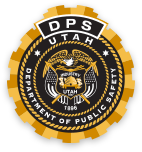Qualifications
There are standards and qualifications which must be met in order to be a Peace Officer in the State of Utah. Below is a list of legal requirements and disqualifications to be aware of.
The following conditions WILL disqualify you from being accepted into any law enforcement training academy or from becoming employed, in a sworn peace officer position, with any public safety agency within the State of Utah:
- Not being a US Citizen or Lawful Permanent Resident (last five years continuous as LPR holder)
- Falsification of any information on a POST application
- Any felony conviction – Exceptions: Juvenile convictions for felony crimes will be considered, but are not an automatic disqualification
- Being dismissed from the armed services under dishonorable conditions
- Being unable to possess a firearm under state or federal will disqualify a person from being certified as a law enforcement officer
The following conditions MAY disqualify you from being accepted into any law enforcement training academy or becoming employed, in a sworn capacity, with any agency within the State of Utah:
- Conviction of or involvement in misdemeanor crimes concerning drugs/controlled substances- requires a two (2) to four (4) year waiting period from date of conviction or involvement depending on the type of drug/controlled substances involved. (Note: a common question is “When submitting an application to POST for training, do I need to report using someone else’s prescription drugs, or using prescription drugs that were not prescribed to me? The answer is Yes. (Please refer to UT Code Annotated 58-37-8).
- Involvement in a felony crime for which you were not convicted of a felony requires a four (4) year waiting period from date of involvement.
- Conviction of or involvement in class A misdemeanor crimes involving physical violence requires a four (4) year waiting period from date of conviction or involvement.
- Conviction of or involvement in class A misdemeanor crimes that do not involve an act of violence requires a three (3) year waiting period from date of conviction or involvement.
- Conviction of or involvement in class B misdemeanor crimes involving an act of violence, possession or use of a controlled substance or providing false information to obtain certification requires a two (2) year waiting period from date of conviction or involvement.
- Conviction of or involvement in class B misdemeanor crimes involving sexual acts, harassment, theft, crimes of dishonesty, the use of alcohol or the use of prescription drugs requires a one (1) year waiting period from date of conviction or involvement.
- Conviction of or involvement in class B misdemeanor crimes not including any of the things listed above requires a six (6) month waiting period from date of conviction or involvement.
- Conviction of or involvement in class C misdemeanor crimes or infractions requires a three (3) month waiting period from date of conviction or involvement.
For more detail on the legal requirements click on the link below.
